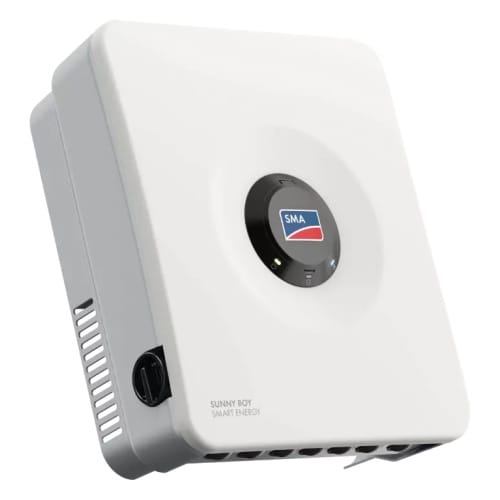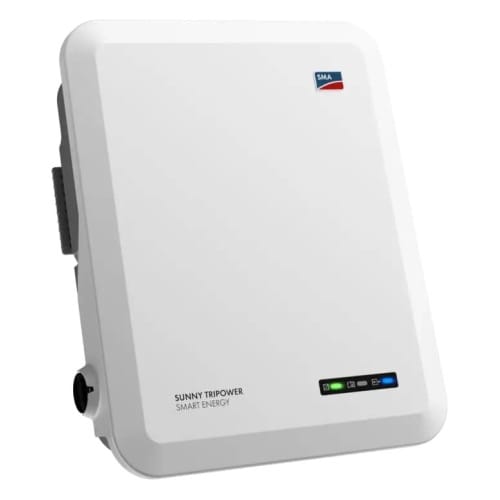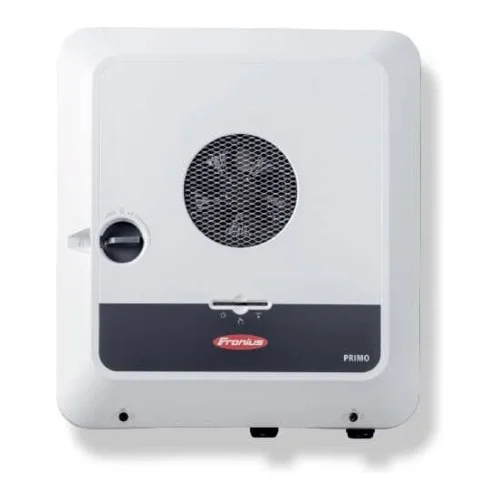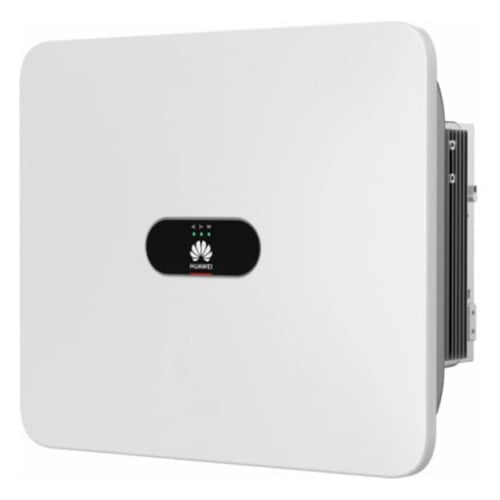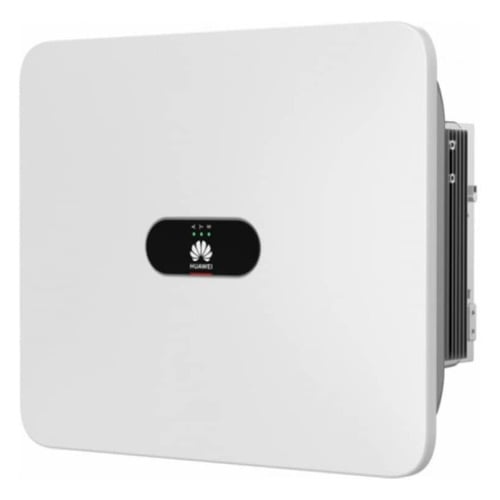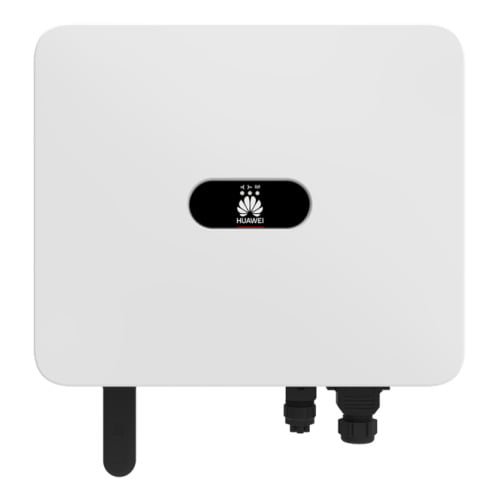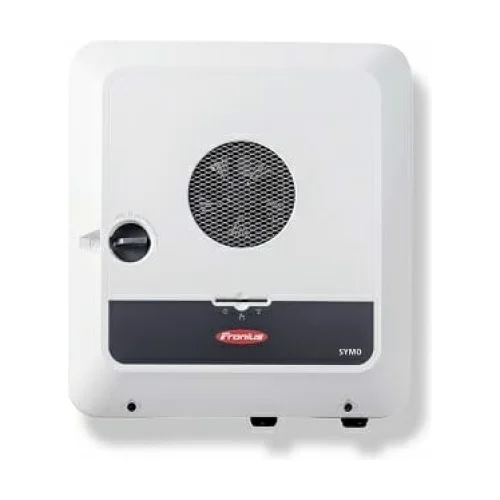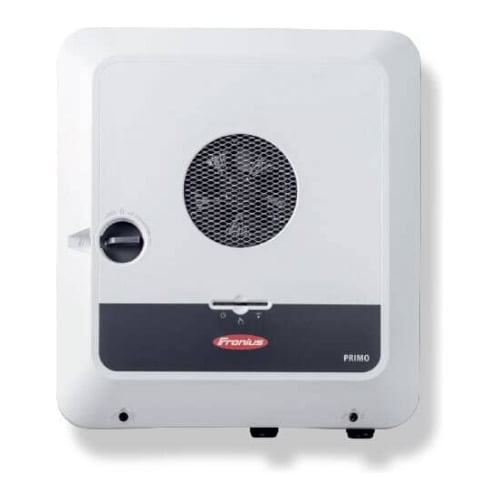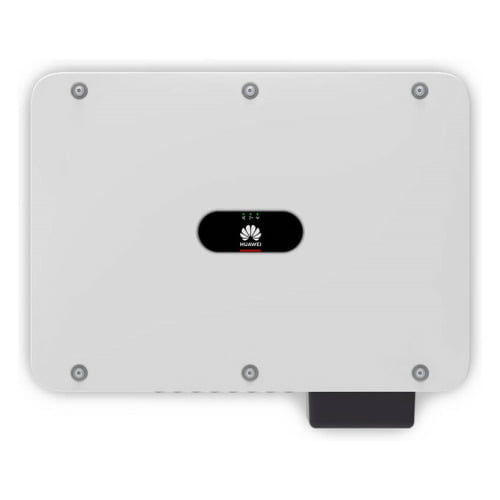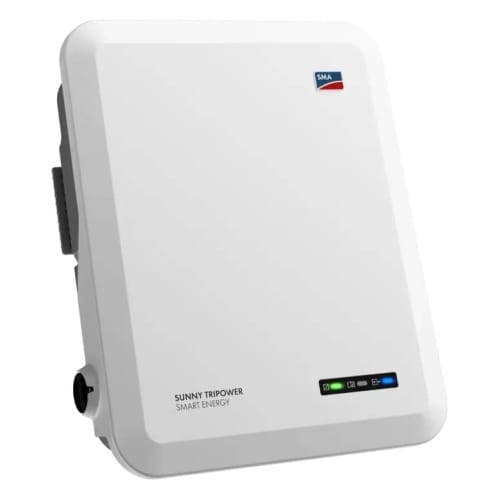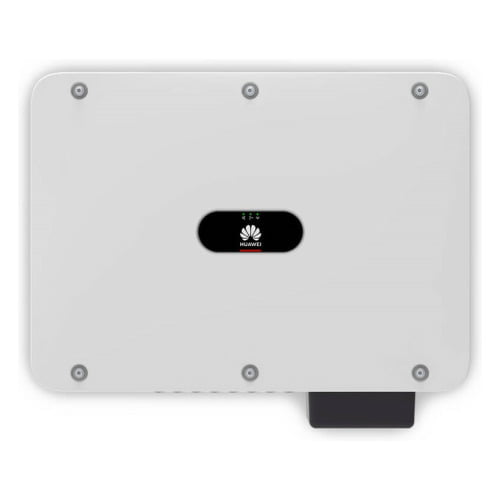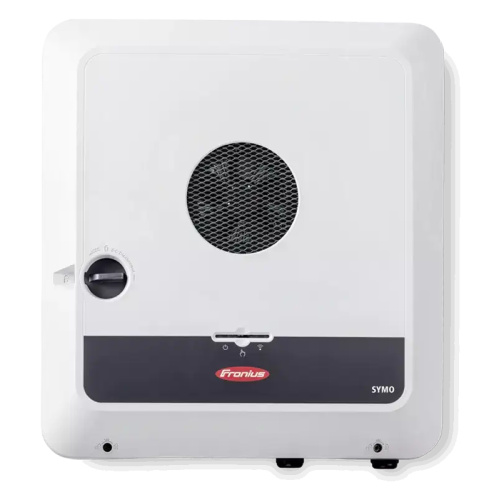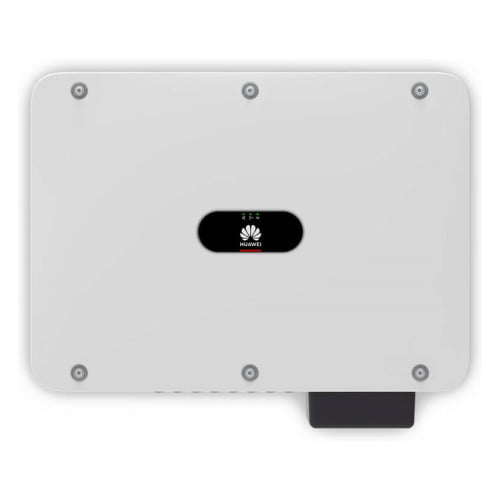- Free shipping to mainland Spain for orders over 300€.
Hybrid Inverters
"Huawei SUN2000 30KTL-M3-H4 Three-phase Hybrid Inverter - 01075485-069" has been added to your basket. View basket
Hybrid Self-Storage Inverters
What are hybrid self-consumption inverters and what are they for?
Hybrid self-consumption inverters are devices that convert the direct current (DC) produced by solar panels into alternating current (AC) and also have a connection for a battery to store the solar surplus before feeding it into the grid, and are most suitable for use in homes, businesses and industries.
They also manage energy storage, allowing batteries to be charged and discharged with surplus solar energy, so that it can be used later at times of low or no solar radiation (when there is no production, rainy or cloudy days), when the price per kW/h is higher, or during power cuts (depending on the model), it can even operate in isolation so as not to interrupt the supply.
In addition, a hybrid inverter integrates an energy management system (ESS) that decides, at any given moment, where the energy comes from and where it goes (panels, consumption, batteries and grid). This makes it possible to maximise self-consumption, reduce power peaks, offer back-up in the event of blackouts (if the equipment allows it) and optimise costs in electricity tariffs with hourly discrimination.
Main brands of hybrid self-consumption inverters
The world's leading and best-known brand of hybrid inverters for self-consumption is FroniusThe brand, known for its distinctive red colour, has become a symbol of safety and reliability. Compared to alternatives such as HuaweiFronius is superior in performance, equipment reliability, compatibility with all types of single-phase or three-phase systems and suitable for installation in all circumstances; homes, businesses. Within the Fronius product ecosystem, the GEN24 range offers both single-phase and three-phase equipment for domestic or small power equipment. For commercial equipment, it has the Verto range and for the higher range, where higher powers are required, it has the Tauro range. With more than 75 years of life, the Fronius brand is a symbol of energy independence and safety.
Characteristics of hybrid self-consumption inverters
A hybrid self-consumption inverter is characterised by the following features:
- Multiple maximum power point trackers (MPPTs): They usually have 2 MPPT inputs for panels and an additional MPPT input for the battery, which maximise the performance of installations with panels in different orientations (each MPPT input to a different orientation).
- AC/DC bidirectional connection: allows energy to be managed both from the AC mains to the batteries and from the batteries to the mains.
- Communication interfaces: Most hybrid inverters today have an internet connection and an application for remote monitoring.
- Compact and quiet design: ideal for indoor or outdoor installation, with IP65 protection in many cases.
- Integrated back-up system: ensures emergency supply even without battery.
Advantages of hybrid self-consumption inverters
A hybrid inverter has many advantages such as the following:
The energy autonomy allows you to be less dependent on the grid, by having your own battery, the inverter generates the energy that the installation needs, storing the surplus in the battery so that it can be used at night or when it is cloudy.
With regard to the continuity during power outages, these systems have an emergency back-up that ensures you will have electricity even when there are power outages. This means you can keep essential loads powered during blackouts and avoid having a PV installation that does not work in a blackout.
In terms of cost savingsThese systems help to reduce your electricity bill by first consuming solar energy or the energy stored in the batteries before relying on the grid.
The flexibility is another great advantage, as they can operate on the grid, in stand-alone mode or in combination, depending on the model you choose.
In addition, they offer greater control and efficiencyThe system incorporates monitoring and control systems that optimise the charging/discharging and energy consumption of the home or company.
The intelligent management is possible thanks to its charging algorithms, which allow battery use to be programmed, self-consumption to be maximised and tariffs to be optimised.
Finally, many models are compatible with electric mobilityThe system allows the integration of charging points for electric cars, making it possible to charge the electric vehicle only with solar surpluses and to prioritise the charging of the car rather than the home battery.
In addition, nearly all hybrid systems also offer scalabilityThe new battery packs can be used to increase the storage capacity by adding more battery modules.
Typical uses of hybrid self-consumption inverters
Hybrid self-consumption inverters have many uses, but the following stand out:
- Single-family houses with self-consumption that harness solar energy in real time and store electricity in batteries, helping to reduce dependence on the grid and make power available at night.
- Small and medium-sized enterprises who benefit from a reduction in their energy costs and an optimisation of their tariff.
- In areas where the electricity is unstable because these systems provide backup in the event of power outages, ensuring that critical loads, such as boilers, refrigerators and communication systems, continue to operate without outages or interruptions.
- At collective self-consumption because it allows, in some cases, them to be integrated into energy communities to schedule grid dumps during the night when electricity prices are more expensive.
- For the electric vehicles because it can be charged using surplus energy during the day or from the battery at times of high demand, depending on the power available.
- For extending existing facilities by AC coupling, which allows storage to be added without the need to redo the PV array.
Preventive maintenance of hybrid inverters
- Every six months, perform a visual inspection including connectors, tightening, ventilation and cleaning of accumulated dirt.
- Annually check fault records, electrical insulation and the condition of surge arresters.
- If you have filters or heatsinks, be sure to clean them periodically.
- Verify that the firmware is up to date and keep backup copies of the configuration.
- For the battery, it monitors the state of charge (SoC), temperature and number of cycles; it is important that the SoC is not kept at extreme levels for too long and that there is not too high an imbalance between the LifePo4 cell voltages.
Guarantee of hybrid inverters for self-consumption
Hybrid self-consumption inverters generally come with a factory warranty of 5 to 10 years; many manufacturers offer the option to extend this to 10, 15 or even 20 years (this usually requires an additional fee, registration on a portal and installation by a brand-authorised installer).
What is needed for the guarantee to remain valid?
Installation must be in accordance with the manual and regulations, have adequate safeguards, up-to-date firmware, proper ventilation, and be used within the limits set by the manufacturer.
What could void the warranty?
Any internal opening or tampering, connection to non-approved batteries, reverse polarity connection of battery or panels, operation outside technical specifications, lack of minimum safeguards, or failure to demonstrate maintenance when required.
Relevant information
A properly dimensioned and installed hybrid inverter allows you to make better use of solar energy, reduce your bills, have a backup and be prepared for new uses, such as an electric vehicle, home automation or dynamic tariffs.
The essential thing is to match it to your consumption pattern, select a battery that is compatible and ensure that it complies with the manufacturer's regulations and warranty requirements.
Their implementation is crucial for those who want to save on their electricity bills, increase their energy independence and contribute to a more sustainable model.
FVComponentes is at your disposal to advise you on these inverters or any of the products on our website, please contact us for more information.

